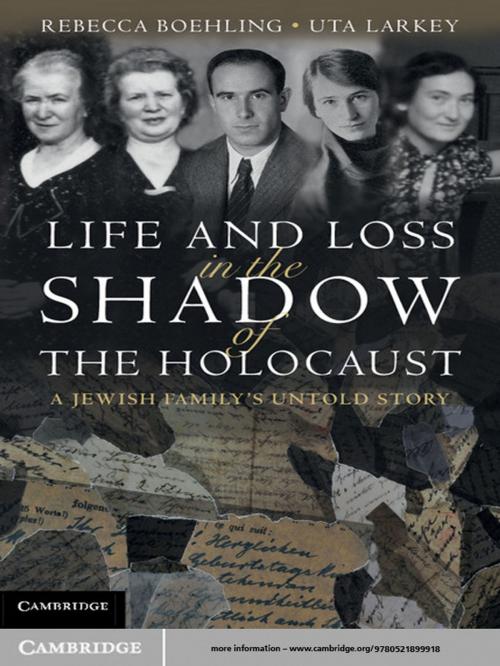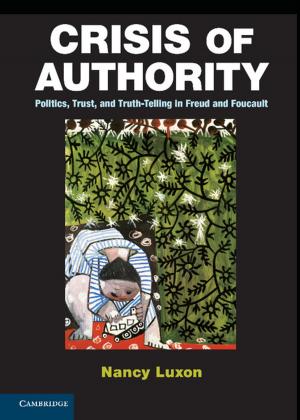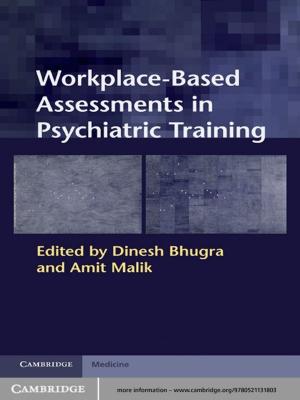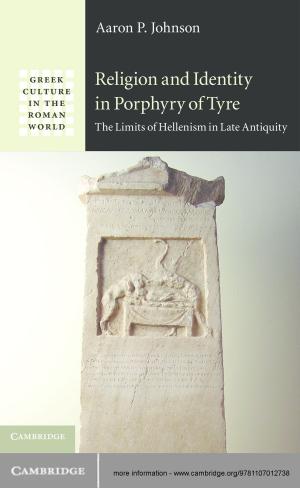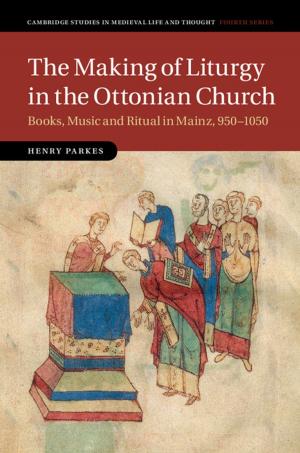Life and Loss in the Shadow of the Holocaust
A Jewish Family's Untold Story
Nonfiction, History, European General, Social & Cultural Studies, Social Science| Author: | Rebecca Boehling, Uta Larkey | ISBN: | 9781139365710 |
| Publisher: | Cambridge University Press | Publication: | June 16, 2011 |
| Imprint: | Cambridge University Press | Language: | English |
| Author: | Rebecca Boehling, Uta Larkey |
| ISBN: | 9781139365710 |
| Publisher: | Cambridge University Press |
| Publication: | June 16, 2011 |
| Imprint: | Cambridge University Press |
| Language: | English |
A family's recently discovered correspondence provides the inspiration for this fascinating and deeply moving account of Jewish family life before, during and after the Holocaust. Rebecca Boehling and Uta Larkey reveal how the Kaufmann-Steinberg family was pulled apart under the Nazi regime and dispersed over three continents. The family's unique eight-way correspondence across two generations brings into sharp focus the dilemma of Jews in Nazi Germany facing the painful decisions of when, if and to where they should emigrate. The authors capture the family members' fluctuating emotions of hope, optimism, resignation and despair as well as the day-to-day concerns, experiences and dynamics of family life despite increasing persecution and impending deportation. Headed by two sisters who were among the first female business owners in Essen, the family was far from conventional and their story contributes new dimensions to our understanding of Jewish life in Germany and in exile during these dark years.
A family's recently discovered correspondence provides the inspiration for this fascinating and deeply moving account of Jewish family life before, during and after the Holocaust. Rebecca Boehling and Uta Larkey reveal how the Kaufmann-Steinberg family was pulled apart under the Nazi regime and dispersed over three continents. The family's unique eight-way correspondence across two generations brings into sharp focus the dilemma of Jews in Nazi Germany facing the painful decisions of when, if and to where they should emigrate. The authors capture the family members' fluctuating emotions of hope, optimism, resignation and despair as well as the day-to-day concerns, experiences and dynamics of family life despite increasing persecution and impending deportation. Headed by two sisters who were among the first female business owners in Essen, the family was far from conventional and their story contributes new dimensions to our understanding of Jewish life in Germany and in exile during these dark years.
